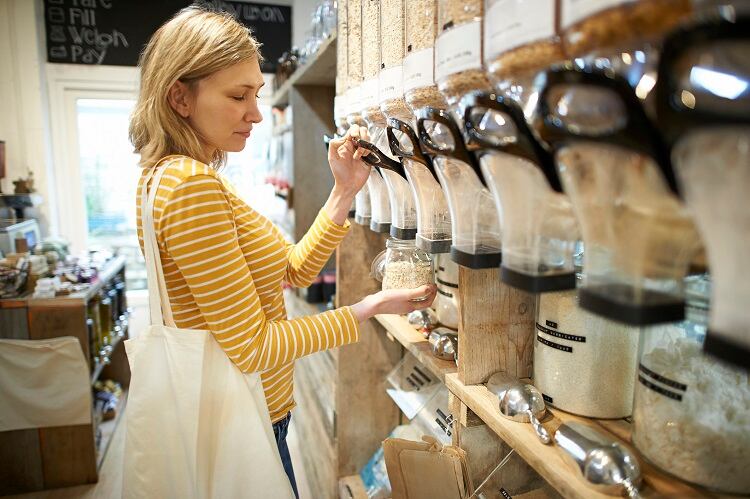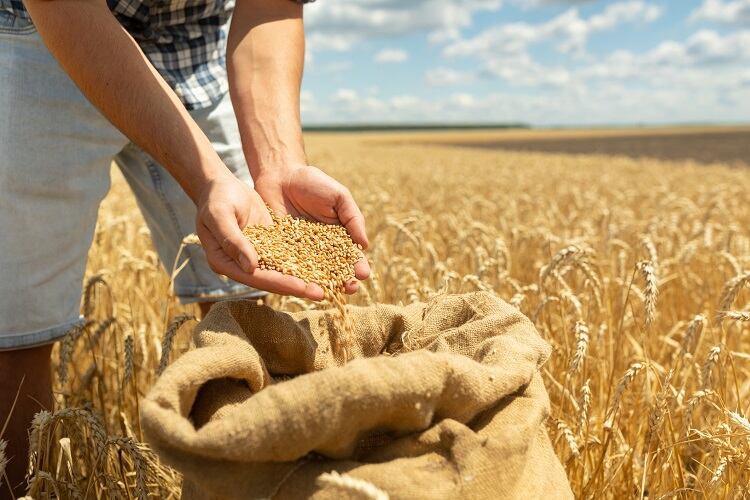The World Health Organization (WHO) has warned that “climate change presents a fundamental threat to human health. It affects the physical environment as well as all aspects of both natural and human systems – including social and economic conditions and the functioning of health systems.”
With this in mind, it’s alarming to know that food production is a major contributor to climate change, with figures from Our World in Data showing it accounts for over a quarter (26%) of global greenhouse gas emissions.
It’s not surprising then that consumer awareness of the environmental impact of the food industry is growing, leading to many urging governments and brands to reduce their impact and create a more sustainable and resilient food system. But is sustainability the most important issue to consumers and are they willing to pay more for sustainable products?
Why is sustainability essential for future food security?
Extreme weather events, which threaten crops and livestock, are becoming more prevalent across the globe as the changing climate alters weather patterns.
According to the European Environment Agency (EEA), Europe has experienced an increasing number of severe weather-related natural hazards, including droughts, forest fires, heatwaves, storms and heavy rain, over the past decade.
“These events are unfortunate reminders of the changing and volatile climate that Europe needs to adapt and prepare for, while taking action to drastically reduce carbon emissions in order to slow down and limit climate change,” said a spokesperson for the EEA.

Are consumers willing to pay more for sustainably produced products?
The cost-of-living crisis, which has affected much of Europe in recent years, has inevitably affected spending patterns, However, there is evidence to suggest that some consumers remain willing to pay more for sustainably sourced products, with a recent study by climate tracking firm, reewild, finding that shoppers are turning towards environmentally friendly products, in spite of economic difficulties.
The study found that eco-conscious consumers already account for one in every five pounds spent on fast-moving consumer goods (FMCG) in the UK. At 20%, that is already a sizeable share of the market, and it’s projected to grow to a dominant 62% by 2030.
And this is echoed across Europe, with a study from Innova Market Insights finding that European consumers surveyed, “expect the [food and beverage] industry to stand up for sustainability.”
However, this is not the complete picture, and while sustainability is important to many consumers, the fact remains that cost is still a major contributing factor.
“Taste and price are non-negotiable for consumers when it comes to food and drink,” Kiti Soininen, head of UK Food and Drink Research at market insight firm, Mintel, told FoodNavigator. “Environmental and other ethical factors lag quite far behind.”
This could underline the issue that while consumers are indeed engaged on sustainability issues, and want food manufacturers to do more, they won’t or can't necessarily pay more for these items.
“Only one in ten food and drink shoppers report choosing products with sustainability claims over others for all of the products they buy,” says Soininen.
But conversely, 50% of those surveyed by Mintel report said they actively avoided buying from food and drinks brands, with poor eco-credentials.
“While green credentials won't be enough to sway most shoppers to choose a product, being seen to fall short on this will see a sizeable group shun, suggesting brands can't afford to be seen as lagging,” says Soininen.
“While green credentials won't be enough to sway most shoppers to choose a product, being seen to fall short on this will see a sizeable group shun, suggesting brands can't afford to be seen as lagging.”
And if you were wondering what came after taste and price in many consumers’ list of priorities, well, it appears to be health.
"Health is top of the list after taste and price. It's also top of the list for what people would most likely be encouraged to buy more of, as the cost-of-living crisis eases,” adds Soininen.
This will come as no surprise for many in the food industry as numerous food trends, such as gut health and elimination diets, are proving hugely popular with consumers and hugely profitable for food and beverage brands.
Another aspect to consider, with regards to sustainability, is the emerging trend towards buying locally sourced produce. This implies that there is clear consumer awareness of the importance of buying sustainably.
"In recent times, short food supply chains and local markets, where farmers sell their produce directly to consumers or with a minimum of intermediaries, have flourished in all EU countries, both in rural and urban areas," said Marie-Laure Augère-Granier, policy Analyst for the European Parliament. "They represent an alternative to conventional longer food chains where small farmers often have little bargaining power and the consumer cannot trace the food to a known producer or local area. On average, 15% of EU farms sell more than half of their production directly to consumers."
This trend is also being seen in the UK, with figures from business intelligence platform, Statista, showing that the emergence of the 'local food movement' has led to a rise in the consumption of locally grown produce. In fact, 58% of all food consumed, in the UK in 2022, was also produced in the UK.
In short, it’s a complicated picture without a clear answer, but one thing is for sure, governments and food manufacturers are responsible for producing sustainable products. So, how can they support sustainable food consumption?

What can policymakers do to support sustainable food consumption?
The consumer report from Mintel found that taste and price are the two main factors influencing consumer choice, and when it comes to price, governments across Europe and the world have the opportunity to encourage consumers towards sustainable food choices.
“Price is always going to be a decisive factor for many consumers, so governments should look at shifting subsidies and lowering VAT rates for food which is healthy, local, seasonal and organic,” Marco Contiero, agriculture policy director for Greenpeace EU, told FoodNavigator.
And when it comes to taste, food manufactures are the ones with the power, ensuring the sustainable options are the most appealing to consumers so they will choose them without hesitation.
“Many consumers believe brands bear as much responsibility for positive change as governments,” said a spokesperson for the World Economic Forum. This shows the responsibility consumers are placing on manufacturers and it’s important that brands recognise their responsibility for sustainability.



